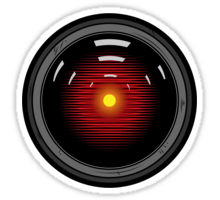Here is my semi-frequent reminder and pointer for blog readers that I also write a monthly column at Human Resource Executive Online called Inside HR Tech that can be found here.
This month I took a look at the emerging technology field of Artificial Intelligence, or AI, and review some of the considerations and implications for HR leaders who are evaluating, selecting, and implementing new HR technologies that are based around AI. 
One of the major challenges for the developers of AI solutions is that these technologies can be seen as impenetrable, abstruse, cryptic, and more alarmingly, unfair or unethical. We (mostly), implicitly 'trust' many smart technologies like Amazon, Facebook, and Netflix to make the best, most accurate predictions of what content we will like or what products we want to purchase, even if/when we don't really know how these algorithms actually work, how they are configured, and how any original or baseline biases or inaccuracies inform them.
In this month's HR Executive column I take a look at five fundamental principles of AI for HR leaders to consider. These principles or guidelines provide a starting framework for HR to begin to form questions, challenge solution providers, and assure employees that any AI technologies they deploy will be deployed ethically. From the HRE piece:
As 2016 has been winding down you've no doubt seen or will see various published or online pieces such as "HR Trends to Watch for 2017" or "Hot Technologies for HR Leaders in 2017." I thought (briefly) of making this last Inside HR Tech column of 2016 such a piece. But then I decided that, rather than contribute to the chorus of prognosticators predicting "mobile will be big in 2017," I would instead dig in a little more to one trend or "hot" technology that most analysts and industry observers are pointing to in 2017, namely "smart" HR technologies. Whether it's called artificial intelligence, machine learning or predictive technology, the development of more sophisticated HR technologies that can evaluate and mine large data sets, make recommendations based on past data and "learn" or adapt over time to become even better at providing HR and business leaders with people-related decision support presents HR leaders with both an opportunity and a challenge.
Just as some earlier HR-technology advancements failed to produce the desired business outcomes because they simply automated or made a badly designed processes easier to replicate (think about the first time you automated your dreaded annual performance reviews or placed your too-long, candidate-unfriendly application process online), the application of "smart" technology (or artificial intelligence) for HR also presents the very real danger of perpetuating many undesirable characteristics and outcomes of current processes. For example, if a "smart" tool that is meant to help HR leaders predict future high performers based on an assessment of the traits of current high performers has, at its core, a fundamental bias in how managers have rated these current high performers, then the "smart" technology may continue to perpetuate this biased evaluation tendency.
What are some the guidelines or principles that HR leaders (and solution providers) should consider when developing and deploying these technologies for making HR and talent decisions? I've found what I think is a good starting point developed by the Fairness, Accountability, and Transparency in Machine Learning organization that I want to share. It offers five core areas to consider and questions to ask of these "smart" solutions that HR leaders can use to guide their research, inquiry and assessment of these tools. Briefly, the five elements and some recommended and related questions to ask solution providers for each area are as follows:
Responsibility
Above all, it is incumbent for HR leaders to ensure any artificial decision-support technologies are operating responsibly. Ask if there are visible and accessible processes for people to question or address adverse individual or organizational effects or impacts of an algorithmic decision system or design. And who will have the power to decide on necessary changes to the algorithmic system during the design stage, pre-launch and post-launch? Finally, can your solution provider make adjustments and changes that are determined to be necessary for the organization to address these kinds of concerns?
Read the rest at HR Executive...
Good stuff, right? Humor me...
If you liked the piece you can sign up over at HRE to get the Inside HR Tech Column emailed to you each month. There is no cost to subscribe, in fact, I may even come over and scrape the ice off your windshield, hang up your Christmas lights, or return your unwanted presents on December 26.
Have a great day!

 Steve
Steve

